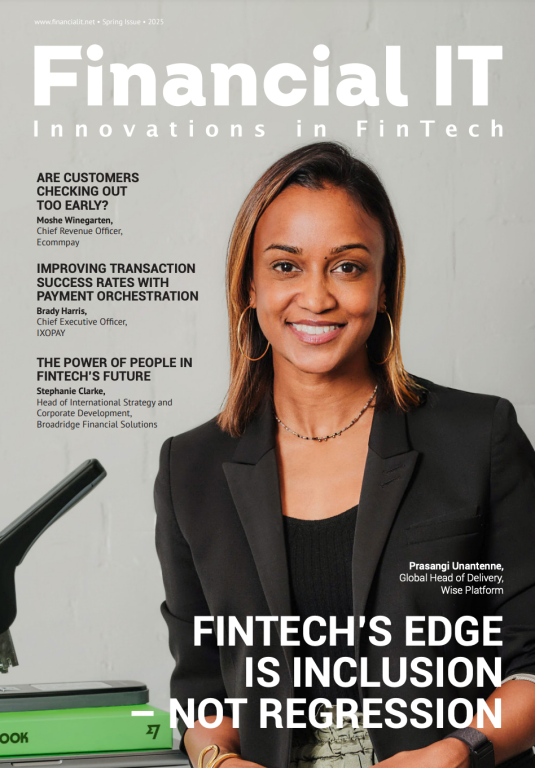Published
- 07:00 am

Mastercard and SumUp today announced a new partnership that will increase the number of electronic payment acceptance locations across 27 European countries. Over the next five years, Mastercard and SumUp will bring card acceptance to several million micro, small and medium-sized companies (MSMEs) across Europe.
The partnership will enable micro, small and medium-sized companies (MSMEs) to accept electronic payment via SumUp card readers by card and digital enabled devices, such as smartphones, smartwatches or wristbands. In a world in which consumers expect choice and convenience, it will enable small companies to better serve their customers by giving them the opportunity to pay with their preferred payment method.
Jason Lane, Executive Vice President, Market Development, Europe says: “We’re very excited to be able to partner with SumUp, an innovative and leading player in the provision of payment devices for the small business sector. The scale and breadth of this partnership will significantly advance electronic payments acceptance in Europe. Micro, small and medium-sized companies form the backbone of the European economy and this initiative will help them to better serve their customers by offering them real payment choice. I look forward to expanding this partnership in the future.”
Across much of Europe, cash still accounts for a significant proportion of payments, particularly when it comes to low value payments made to small businesses. However, cash continues to be an inefficient and insecure means of payment. The hidden costs of cash for small business can be substantial. Whether it is transportation costs, security issues, laborious counting, reconciliation or fraud and counterfeit notes, the acceptance of cash comes with many disadvantages. Mastercard and SumUp are committed to helping small businesses overcome these challenges and making payments safer, easier and more convenient by delivering simple and effective payment solutions. With SumUp’s innovative approach to mPOS and Mastercard’s focus on creating an environment in which such solutions can flourish the two companies are perfectly poised to achieve this.
Accepting electronic payments can also bring additional benefits. For example, offering electronic payments has been demonstrated to increase sales, bringing real benefit to a business’s bottom line. SumUp’s data shows that small businesses can grow up to 60% by starting to accept card payments. Mastercard’s research shows that on average, new acceptors of card payments usually see a 10-15% increase in their average transaction size, linked to value and volume as consumers are not limited to the amount of cash in their pocket. This is a particular issue for small shop owners in more remote rural areas where access to cash and ATMs can be scarce. Not only that, but electronic payments provide a boost to cashflow, enabling the timely crediting of funds with the benefit of a payment guarantee and eliminating the need to chase unpaid invoices and debt.
Marcel Schneider, CCO & EVP Europe at SumUp comments: “There is a card acceptance gap that exists due to smaller businesses historically not being well-served by traditional payment providers. 10% of any population should be able to accept card payments but only around 1% does. It’s this gap that SumUp and Mastercard are looking to fill through the partnership. “
With a payment terminal from SumUp, small business owners can focus on their business aspirations, confident that they have a payment solution that will support their business growth.
This partnership is another example of Mastercard’s and Sum Up’s commitment to growing financial inclusion bringing millions of micro-entrepreneurs into the formal economy for the first time
Related News
- 01:00 am

Mirabella Group, the regulatory hosting arm of ACA Compliance Group, today announced that it has enhanced its hosting services in Malta by adding a Tied Agent solution to its existing alternative investment fund manager (AIFM) service. This new solution helps non-European Economic Area (EEA) firms to interact with their EEA clients using MiFID passporting.
Mirabella has created a new subsidiary, Mirabella Malta Advisers Limited (MMAL), which will act as Principal to locally based Tied Agents, which will be owned by non-EEA firms. This Tied Agent service saves non-EEA based firms money, time and effort, and importantly draws on Mirabella’s existing and significant UK-based expertise in this area. MMAL’s local permissions include: provision of investment advice; the receipt and transmission of orders; and placing on a non-firm commitment basis.
While there are protocols to observe, this new offering will allow non-EEA firms to operate through their affiliated Tied Agents and thus use MiFID passports to access EEA markets. Malta’s pragmatic and experienced regulatory framework offers distinct advantages in this area. The Mirabella Group’s significant local presence enables the Tied Agents to operate without significant local substance.
In addition, non-EEA firms and in particular those from English-speaking countries, will enjoy the close linguistic and cultural ties with Malta and particularly its approach to financial regulation, law, and customer service.
Joe Vittoria, Mirabella’s CEO, comments: “Mirabella has been operating a successful, best practise Tied Agent offering in the UK for well over a decade now, and a successful AIFM hosting service in Malta for over five years. It simply makes sense to harmonise these offerings and mirror the Maltese and UK activities. Our considerable experience in the area, as well as our market leading knowledge of both EU and Maltese regulation, makes us well-placed to hit the ground running, and we are pleased that we already have a number of clients benefiting from this service.
“If there’s anything the last decade has taught us it’s that the world of financial regulation is a fast-changing one, both in terms of rules and borders. Our new offering in Malta - a manager friendly EEA state -- in addition to providing a needed service more generally, also offers a bit of futureproofing – we want to ensure that quality non-EEA firms that meet the proper requirements always have a convenient and reliable way to access European markets, as per the spirit of MiFID.”
Related News
- 06:00 am

FIME offers consultancy and testing services to support the development and launch of software-based mobile point of sale (softPOS) solutions. SoftPOS developers can now ensure the functionality, interoperability and security of their applications prior to launch.
SoftPOS solutions are completely software-based. They use the near field communication (NFC) functionality of smartphones to accept contactless card or mobile payments using a commercial off-the-shelf mobile device. As a consequence, such solutions are also often referred to as Tap on Phone or Tap to Phone.
“Micro merchants have traditionally taken cash, but they are crying out for cheaper, simpler digital ways to accept payments,” commentsOlli-Pekka Palmu, Manager of Terminal Services at FIME. “We have already supported several successful softPOS projects and have now formalized our services. Vendors can now ensure their apps align with the latest scheme specifications, test plans and security requirements to empower micro merchants with high-quality, trusted acceptance. All on a mobile device. This will help to accelerate card and mobile payment acceptance.”
Related News
- 09:00 am

Related News
- 03:00 am

Cheers Paytech, the Singapore-based fintech, has partnered with Mambu to provide the core banking technology for all wallet accounts to fuel growth. The partnership will facilitate the backend movement of funds within the Cheers Wallet Engine.
Mambu’s rapid deployment capability and API-first architecture will allow the team to integrate quickly and without the need for complex coding or underlying infrastructure maintenance.
Cheers Paytech’s Chief Executive Officer, Gregor Arn said: “At Cheers Paytech we pride ourselves on providing customers with the best, most innovative technology available. We chose Mambu to provide our core banking system because their capabilities are fully aligned with our model, goals and culture.”
Cheers Paytech’s Chief Growth Officer, Arish Khajotia added: “We are in the privileged position as a startup to have a customer pipeline filled through to the end of 2020 and beyond, representing a total potential wallet user base of over 100 million wallets as of today. The Cheers Wallet Engine, powered with Mambu, will further enable the strong adoption by those currently suffering from financial exclusion to not only access mobile payments, but to become an active part of the wider global digital economy.”
Mambu’s cloud-native and API-first architecture will help the team to deploy within a matter of months, enabling a composable solution that allows Cheers Paytech to be as agile as possible in adapting to customer needs as they change.
Myles Bertrand, Managing Director, APAC, Mambu remarked: "The financial sector is leveraging digital technology to meet the changing expectations of customers and markets as well as reach underbanked and unbanked consumers. As the leading SaaS banking engine, Mambu is aligned to Cheers Paytech’s innovative model and culture, and supporting agile and quick integration and we look forward to working closely with them to help customers across the region.”
Related News
- 05:00 am

New research conducted by Klarna across 2,000 UK consumers and over 250 retail decision makers, reveals that retailers are struggling to retain their customers as consumers today increasingly have zero tolerance for a poor retail experience.
40% of shoppers say just one bad experience would stop them returning to a brand. A third (32%) say shopping isn’t as fun as it used to be, with 36% feeling that what shoppers today have gained in convenience, they’ve lost in experience.
Where brands used to think of loyalty in terms of reward schemes or points, the findings show that for today’s shopper, the drivers of loyalty run much deeper than a transaction or offer. And when it comes to what drives disloyalty, a bad returns process (30%), and a drawn out online checkout without payment options (21%) rank much higher for shoppers than retailers perceive them to be.
Retailers are recognising this shift and starting to evolve the way they think about loyalty. 41% of retailers agree that loyalty is no longer solely driven by rewards and 76% say they have to work harder than ever to retain customers. But, many (33%) are struggling to keep pace with changing consumer expectations around experience and are being held back by outdated tech (33%) and a short-term focus on sales (30%).
Shoppers demand more
This new research gives retailers some of the insights they need to help win the loyalty stakes and deliver the standout shopping experience demanded by consumers. It reveals that whilst the traditional drivers of loyalty remain important, it is no longer enough to only deliver value for money, quality products and a good online UX.
Shoppers today want more - craving things like brand values they can align with (40%), human engagement (35%) and flexible payment options (26%). This is especially true of millennial and Gen Z shoppers who care less about value for money, and more about brand image (20%, compared to 13% of over 45 year olds) and flexible payments (30%, compared to 25% of over 35 year olds).
Can retailers keep pace?
These insights demonstrate how important it is for retailers to focus on these broader concepts of experience to win back loyalty. It’s encouraging to see forward-thinking retailers are already starting to invest in these ‘newer’ elements of experience. The top areas for investment over the next 12 months are a smooth online UX (39%), additional payment options (38%), a curated experience (37%) and brand content (34%).
Luke Griffiths, Managing Director at Klarna UK commented: “Loyalty is no longer a ‘points’ programme. It’s clear that consumers want to align themselves with brands who can offer them a deeper connection and understand how they want to shop. Retailers need to be investing in the right drivers of loyalty for their customers - whether that’s flexible payment options that fit with their lifestyle or curated experiences that put the fun back into shopping. As consumer expectations continue to grow and the role of experience becomes increasingly important, getting this right will be vital to success in a competitive retail market.”
Andy Mulcahy, Strategy & Insight Director at IMRG commented: “Shopper confidence appears to be in a suppressed state and many retailers are under pressure to enhance the customer experience they offer to keep ahead in a tough environment. The problem is that ‘customer experience’ is a term that can technically cover every aspect of a retailer’s proposition. Identifying where to focus resource is a challenge. This research shows that understanding the drivers of loyalty that will work for a specific retailer is important for keeping ahead today.”
Holly Stewart, Head of Brand, BEAUTY BAY: “We’re constantly evolving what we do to ensure we’re hitting the right drivers of loyalty for our customers. For example, being an online brand doesn’t mean only existing in the digital world and we know our customers want IRL experiences that allow them to feel truly connected to the brand. That’s why activations like beauty master classes with pop-up shopping help us create deeper loyalty and long-lasting brand advocates.
We’re also now seeing payments as crucial differentiator in the shopper experience, and we recently introduced Pay in 3 for customers to split payments into manageable chunks with no fees or interest. Our customers have loved this flexibility and it’s driving new customer acquisition, increasing loyalty amongst existing customers.”
Related News
- 06:00 am

Following participation in the FCA’s Sandbox initiative in 2018/2019, SquareBook has received regulatory authorisation under Article 25 (2) of the Regulated Activities Order to ‘make arrangements with a view to transactions in investments’. The FCA approval enables SquareBook to provide innovative new services in the Initial Public Offering (IPO) process to benefit firms looking to go public. SquareBook is specifically designed to remove the conflicts of interest inherent in the current book building process - conflicts which affect decisions about who receives allocations of shares and which can also distort the pricing of shares.
Despite the attention generated by mega-deals such as Lyft, Uber and WeWork, the IPO market in both Europe and the USA is in long term decline with the number and value roughly halving over the last 20 years. Much of this trend can be directly attributed to the shortcomings of the current IPO process, which over the years has become increasingly complex, inefficient and opaque. Issuers find the IPO process stifling and unattractive, and both they and investors are increasingly critical of the conflicts of interest that distort share pricing and allocation decisions.
Yet the importance of formal regulated markets has never been greater, and it is widely recognised that any growing economy needs an efficient capital market structure and equity culture in order to support growth.
There is an increasing appetite for change. Large progressive firms such as Slack and Spotify have recently challenged the incumbent IPO market model by pursuing direct listings in order to realise greater shareholder value. They sought an unbundled approach that allowed them to reduce both complexity and cost.
Regulators and policymakers are increasingly critical of an IPO process that is seen as dysfunctional, and which often appears to serve the needs of the financial intermediaries involved rather than the end users of the market. SquareBook believes ambitious entrepreneurs and firms should be free to meet potential investors directly and explore the possibility of using public markets to raise capital, unencumbered by layers of intermediaries who wish to control the process.
Commenting on the FCA approval, Richard Balarkas, Co-Founder of SquareBook, said: “In the last 30 years every aspect of the equities investment life-cycle has been dramatically improved by pursuing policies that promote competition and reduce the barriers to innovation and new services. Yet there has been little or no industry focus on the equity IPO process which is in a state of atrophy. Instead of facilitating capital raising the IPO process itself limits the efficient allocation of capital and ultimately constrains the size and liquidity of the secondary markets.”
“SquareBook aims to dismantle the layers of unnecessary complexity in the IPO process and provide a fresh, modern, efficient means of conducting an equity fund raising on regulated markets.”
Joe Sluys, Co-Founder and CEO of SquareBook, commented: “We have set out to demystify, unbundle and enhance the existing IPO process. We are connecting issuers, investors and intermediaries directly to ensure alignment of long-term interests between firms looking to raise capital on public markets and its investors. By bringing innovation, automation and transparency to the listing process, we empower entrepreneurs considering equity fund raising on public markets to take control over their IPO.”
He added: “We believe that SquareBook will stimulate competition in the IPO process, contribute to a healthy equity culture and economic growth and help return the IPO market to fulfilling its purpose as a source of investment capital for small and growing enterprises.”
Related News
- 03:00 am

Solactive announces the release of two thematic indices that capitalize on two significant megatrends that have the capacity to change not only consumer behavior, but also society as a whole. Both the Solactive China Cloud Computing Index and the Solactive China Biotech Index aim to track the individual performance of the twenty largest and most liquid Chinese companies operating in their corresponding sectors. Mirae Asset Global Investments, one of Asia’s major asset managers, licenses both indices for the issuance of two respective ETFs tailored to investors who want to benefit from the growing demand in Cloud Computing as well as the vast innovation in Life Science and Biotech.
Cloud computing adoption is growing amongst companies. They enjoy the fast scalability and global access to their digital assets as well as the cloud’s superior data security and redundancy systems. According to Gartner, the global cloud service industry is expected to grow exponentially with Infrastructure as a Service (IaaS) offerings growing most rapidly. For 2019, Gartner projects the entire cloud computing industry to grow by a massive 17.5 percent, resulting in total global revenue of $ 214.3 bn. The Index universe of the Solactive Chinese Cloud Computing Index includes companies headquartered in China or Hong Kong and listed on any of the following stock exchanges: HKEX, Stock Connect, NYSE, and NASDAQ. Eligible companies must derive their revenue from Internet Retail and Software Services, IT Services, Packaged Software, and Data Processing Services.
“Cloud computing revolutionized the way in which we use, store, and access our data. Personally, it gives me – in both my professional and private environment – the opportunity to work remotely or access my favorite music without having to worry about local storage,” says Timo Pfeiffer, Head of Research at Solactive. “Asian companies picked up quite a pace in the cloud computing trend within the last few years. Our Solactive Chinese Cloud Computing Index leverages on that momentum, giving investors exposure to a fast-growing market.”
The second index that underlies a new Mirae Asset Horizons ETF is the Solactive Chinese Biotech Index. Research company Global Market Insights forecasts the global industry to grow at a compound annual growth rate of 9.9 %, reaching $ 775 bn expected annual revenue in 2024. “There is sheer force of innovation in life-science and biotech, with a lot of revenue being put back into R&D,”comments Timo Pfeiffer. “Hong Kong has become a key hub for Biotech IPOs, and our new index takes advantage of this emerging center of innovation. With Mirae Asset Horizons ETF, we are looking forward to strengthening our footprint within the APAC area.”
The Index universe of the Solactive Chinese Biotech Index also includes Chinese and Hong Kong companies, which are active in either the Biotechnology or the Pharmaceuticals industries, and which are listed on any of the following stock exchanges: HKEX, Stock Connect, NYSE, and NASDAQ.
Mr. JH Rhee, Chief Executive Officer of Mirae Asset Global Investments (HK) Ltd., commented: “Disruptive themes form a key pillar of Mirae Asset Global Investments’ efforts to develop an ETF platform that is client centric and truly built around investors. The addition of Mirae Asset Horizons China Biotech ETF and the Mirae Asset Horizons China Cloud Computing ETF is built on Mirae Asset’s rich heritage as a leading ETF innovator, which has sought to give investors flexible, cost-effective, and diversified exposure to exciting new emerging industries and asset classes.”
He added: “Previously the domain of VC and private equity investors, the launch of the two ETFs marks the opening of the biotech and cloud computing sectors to the wider investor community, allowing them to share in the enormous potential of these two industries.”
Related News
- 01:00 am

A smart home revolution is sweeping the nation, according to digital home insurer Policy Expert1, which has found that the number of households with a connected home device increased by 5% from 71% in October 2018 to 76% in May 2019.
This is equivalent to an extra 1.36 million households2 purchasing a smart home device in the last eight months – more than the total number of households in Birmingham3. The average spend on smart home devices is £836 per household, with over quarter (26%) of households with a connected home device spending over £1,000.
Total Spend (GBP) | Percentage |
£0-100 | 23% |
£101-250 | 10% |
£251-500 | 16% |
£501-750 | 12% |
£751-1000 | 11% |
£1,000+ | 26% |
Figure 1: Estimates of spend on smart home devices
Meanwhile, the average household has four smart home devices, including smartphones, which is more than the average household size of 2.4 people per home4. This number is likely to grow in the coming months and years with the continued development and popularity of smart technology.
Smart home revolution shows no signs of slowing
The exponential growth in the popularity of connected home devices shows no signs of slowing in the next 12 months. Over the course of the next year, one in five (19%) households are considering purchasing a smart home hub, such as an Amazon Echo or Google Home device.
A further one in five (19%) households are considering buying a smart surveillance camera, while 17% are weighing up purchasing a smart doorbell in an effort to boost security and awareness of activity on their premises.
Adam Powell, Co-Founder and Chief Operating Officer of Policy Expert, commented: “The smart home revolution is taking the nation by storm and is set to continue for the foreseeable future. The industry is beginning to understand that smart home devices, such as leak detectors and advanced smoke alarms, benefit both consumers and insurers. These devices can detect faults and security risks early, reducing the likelihood of policyholders making a claim or reducing the cost of a claim by providing an early warning.
“While most households are being retrofitted with smart home devices, houses of the future will likely come with them built in. Insurers will have to respond by adapting their policies to capture smart home devices. For example, this means ensuring that a customer is covered for theft if the burglar has gained entry to their home by hacking a smart door lock.
We are currently working on investigating the usability of voice enabled quotations through devices such as Amazon Alexa, whereby customers gain a quote after a short yet specific question set. It would rely on data enrichment and various factors, however it is not unreachable and supports our ethos to deliver our customer first-experience.”
Related News

Peter-Jan Van De Venn
Executive Vice President at Five Degrees
The banking and finance landscape see more









